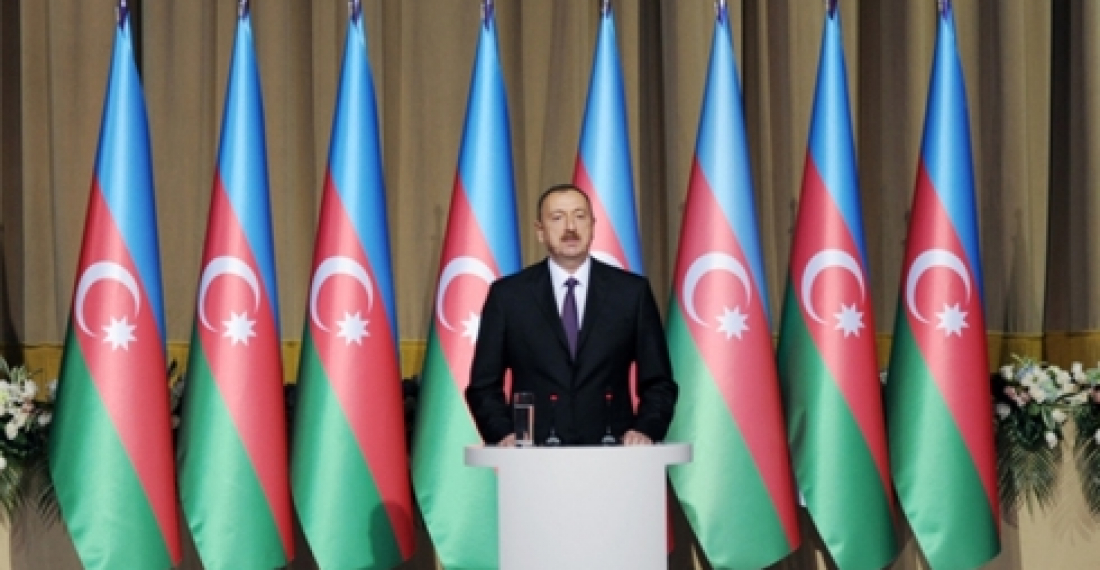The President of Azerbaijan Ilham Aliev said that the war with Armenia is ongoing. "The first phase of the war ended. If Armenia doesn't want the second phase to start, then it should make correct conclusions and withdraw from the occupied lands by itself. Only then it can be on the map as an independent Armenian state."
Aliev was speaking at an official event marking the anniversary of the establishment of the first Azerbaijani Republic on 28 May 1918.
President Aliev said, "We are frequently hearing about confidence-building measures from the co-chairing countries [of the OSCE Minsk Group]. The most effective confidence-building measure is withdrawal of the Armenian occupying forces from the Azerbaijani territories. There is no other confidence-building measure. As long as the lands are under occupation, the war is considered unfinished."
President Aliev accused Armenia of wanting to maintain the status quo even though the Presidents of the Minsk Group co-chairing countries have repeatedly said that the status quo is unacceptable. The President said that Azerbaijan's territorial integrity has never been and will not be a subject to negotiation.
The President said that Armenia should withdraw from the occupied territories in order to take a breath. "Otherwise, the fate of this country will be very dark. We will never accept the current situation. We will allocate funds for strengthening our military capabilities as much as we need and further purchase the most modern equipment."
source: commonspace.eu with agencies







